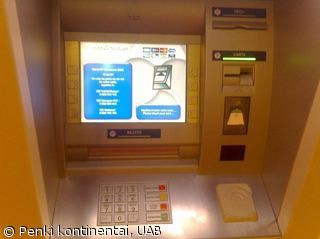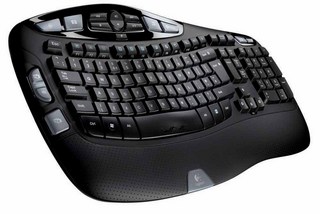The European Commission has opened a consultation period on its controversial "e-money" directive
Published:
11 May 2004 y., Tuesday
The European Commission has opened a consultation period on its controversial "e-money" directive. The EC wants businesses to tell it how the directive could be improved to "avoid unnecessary burdens for industry".
Under the directive, providers of e-money will have to provide a way for people to redeem their e-money for real world money. They must also take action to ensure the system is not used for money laundering.
At present, the e-money directive could be applied to the purchase and use of pre-pay mobile phone cards. The definition of electronic money is monetary value stored on a chip card or computer memory which is accepted for payment by someone other than the issuer.
In interpreting this for use at a national level regulators have disagreed as to how the directive should apply in practice. Some countries have, for instance, decided that pre-pay mobile cards are covered by the new rules. Because of the confusion, the Commission decided last year to seek a common interpretation of the law.
That analysis concluded that mobile pre-pay cards do not qualify as e-money if they are used to buy airtime from the company which issued them. But if they are used to buy ringtones, messaging, news, tickets or other products from a third party then they should be considering e-money.
Still awake at the back? Good. Since, even by EU standards, this is an early morning snack for a four-legged pet (dog's breakfast). The Commission has decided to clarify exactly when and where the e-money directive should be applied. It is asking for comments and suggestions from those in the mobile or related industries and from ordinary punters.
Interested parties have until 20 July 2004 to respond to the proposals and more details are available here, where you can download the whole consultation document as well.
Šaltinis:
theregister.co.uk
Copying, publishing, announcing any information from the News.lt portal without written permission of News.lt editorial office is prohibited.
The most popular articles
Software company announced new structure_ of it_s business.
more »
 Networking sites like Facebook and YouTube are changing politics.
more »
Networking sites like Facebook and YouTube are changing politics.
more »
 Vendor to service almost 4,000 existing ATMs and supply another 450.
more »
Vendor to service almost 4,000 existing ATMs and supply another 450.
more »
 The advent of deposit automation, facilitated in many ways by the implementation of Check 21, is not only improving check-handling processes at the self-service terminal – it also is improving handling within the bank branch itself.
more »
The advent of deposit automation, facilitated in many ways by the implementation of Check 21, is not only improving check-handling processes at the self-service terminal – it also is improving handling within the bank branch itself.
more »
 The Moroccan Post Office, Barid Al-Maghrib, has selected Bull to act as project manager on the automation project for its International Mail Center in Casablanca.
more »
The Moroccan Post Office, Barid Al-Maghrib, has selected Bull to act as project manager on the automation project for its International Mail Center in Casablanca.
more »
 Gemalto has taken home one of the most coveted technology prizes in Austin with its Smart Enterprise Guardian (SEG).
more »
Gemalto has taken home one of the most coveted technology prizes in Austin with its Smart Enterprise Guardian (SEG).
more »
 Banks in Australia are rushing to install gas detectors into their ATMs, as gas-explosive attacks on ATMs in the country continue to climb.
more »
Banks in Australia are rushing to install gas detectors into their ATMs, as gas-explosive attacks on ATMs in the country continue to climb.
more »
 EMC CEO Joe Tucci and Microsoft CEO Steve Ballmer showcase deep technology collaboration at New York CIO Summit.
more »
EMC CEO Joe Tucci and Microsoft CEO Steve Ballmer showcase deep technology collaboration at New York CIO Summit.
more »
 India-based mChek looks to offer its secured SIM-card-based mobile applications through partnership with Gemalto.
more »
India-based mChek looks to offer its secured SIM-card-based mobile applications through partnership with Gemalto.
more »
 Nearly one week after news emerged of the big data breach at Princeton, N.J.-based merchant acquirer Heartland Payment Systems Inc., it remains unclear how much damage actually happened and who did it.
more »
Nearly one week after news emerged of the big data breach at Princeton, N.J.-based merchant acquirer Heartland Payment Systems Inc., it remains unclear how much damage actually happened and who did it.
more »
 Wincor Nixdorf AG has announced the release of an enhanced security product for bank branches called ProTect.
more »
Wincor Nixdorf AG has announced the release of an enhanced security product for bank branches called ProTect.
more »